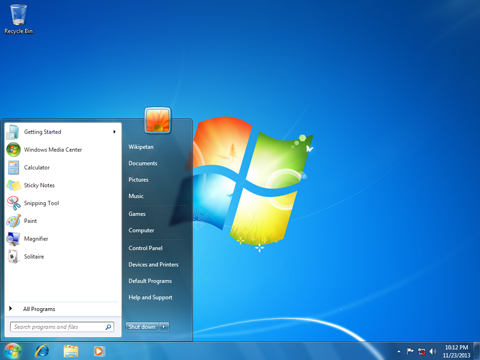It’s Time To Stop Stalling About Upgrading Windows 7 Computers

ANALYSIS: Mainstream support for Windows 7, has already run out and the end of security updates is just three years away.
Windows XP should be a distant, but perhaps painful, memory by now. You remember the angst that came with the end of support for XP, with companies and personal users continuing to use the long-obsolete desktop operating system long after Microsoft had introduced new Windows versions.
For the most part, Microsoft finally succeeded in weaning us off XP by offering an OS that was vastly better in the form of Windows 7.
Now the same thing is happening with Windows 7. Mainstream support has already ended except for those with paid support contracts. All support will end in three years on Jan. 14, 2020. That means Microsoft won send out security updates anymore. If you’re still running Windows 7 by then the operating system will become increasingly more vulnerable to malware writers and hackers.
Windows 7 upgrade
This means that you have three years to decide what to do with your PCs that are currently running Windows 7. Microsoft has been pleading and providing multiple inducements to get people to upgrade to Windows 10.
The company has even managed to anger people by trying to slip upgrades in under the radar. Enterprise customers in particular have been under increasing pressure to move away from 7 (or 8.1 if you’re stuck with that) and move into the world of Windows 10 either by buying new computers or installing the upgrade.
But let’s say that you, like the majority of Windows users, are still running Windows 7. You’ve already missed the free upgrade opportunity. You’re also out of the time when you can get free support. There will be no more improvements or feature upgrades to Windows 7. Yet, you’re still running Windows 7.
There are likely several reasons why you haven’t upgraded to Windows 10. The most likely is that your current computer came with Windows 7 and you’re planning to upgrade to Windows 10 when you get new hardware. Since the typical economic life of a business PC is about three years, then that upgrade will likely happen before three years is up.
But there are huge numbers of businesses large and small that continue running old hardware with earlier Windows versions for five years and more until the computers utterly fail and are beyond economical repair.
There’s also a chance that some application you depend on runs under Windows 7, and either you know it doesn’t work with Windows 10 (because you’ve tested it), or you are pretty sure it won’t. It’s possible the application hasn’t been upgraded since the days of Windows XP.
There’s the classic situation where you can’t get funding either for the purchase price of Windows 10 or for a new computer. Or it may be that you can’t upgrade to Windows 10 because it’s so old it your computer can’t run it.